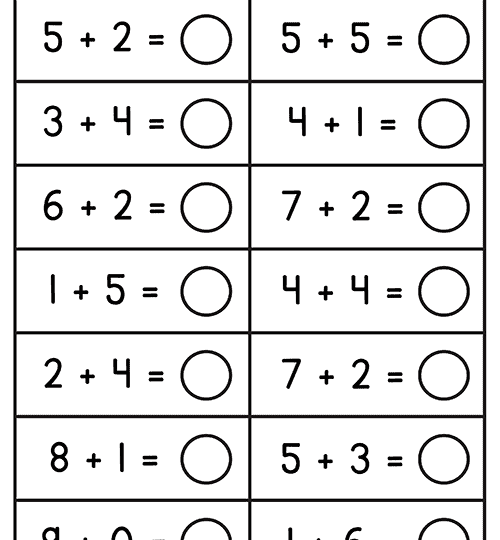Are you ready to embark on a fun-filled early education journey with your little one? Look no further than kindergarten worksheets, the perfect tool to nurture their growing minds while making learning enjoyable.
In this article, I will guide you through the wonderful world of kindergarten worksheets, highlighting their benefits, types, and how they can support your child’s development. Let’s dive in!
Why Kindergarten Worksheets?
Education is not limited to classrooms; it starts at home. Kindergarten worksheets provide an excellent opportunity to introduce educational activities into your child’s daily routine.
Blending learning with play, these worksheets spark curiosity, promote creativity, and encourage critical thinking. Kindergarten worksheets are a valuable resource for early development, whether your child needs assistance with basic math concepts, language skills, or problem-solving abilities.
The Benefits of Kindergarten Worksheets: Empowering Your Little Learner
Engaging in kindergarten worksheets offers numerous advantages for your child’s cognitive, social, and emotional growth. Let’s explore some key benefits:
Enhancing Essential Skills:
Kindergarten worksheets target fundamental skills such as counting, writing, reading, and problem-solving. Children enjoyably practice these skills and develop a solid foundation for future learning.
Boosting Creativity:
Worksheets often include coloring, drawing, and other creative activities. These exercises unleash your child’s imagination and artistic abilities, fostering self-expression and original thinking.
Building Confidence:
As your child completes worksheets independently, they gain a sense of accomplishment and build self-confidence. Gradually tackling more challenging tasks reinforces their belief in their abilities.
Promoting Concentration and Focus:
Worksheets encourage children to concentrate on the task, enhancing their attention span and focus. This skill proves beneficial in various academic and real-life situations.
Encouraging Parent-Child Bonding:
Engaging with kindergarten worksheets provides a wonderful opportunity for quality time with your child. Working together on these activities strengthens your bond while nurturing their love for learning.
Types of Kindergarten Worksheets: Tailoring Learning to Your Child’s Needs
Kindergarten worksheets encompass various subjects and themes, ensuring there’s something for every child. Here are some popular types:
Mathematics Worksheets:
These worksheets introduce numbers, shapes, patterns, addition, subtraction, and other mathematical concepts. Children develop a solid numerical foundation by playfully solving math problems.
Language and Literacy Worksheets:
Language-focused worksheets enhance reading, writing, phonics, and vocabulary skills. Children strengthen their language abilities through interactive exercises, improving communication and comprehension.
Fine Motor Skills Worksheets:
These worksheets involve activities like tracing, cutting, and coloring. Children refine their hand-eye coordination, agility, and pencil grip by practicing fine motor skills.
Science and Nature Worksheets:
Science worksheets introduce young learners to the wonders of the natural world. They explore topics like plants, animals, weather, and simple experiments, fostering curiosity and scientific thinking.
Social and Emotional Worksheets:
These worksheets focus on emotions, social skills, and character development. Children learn empathy, conflict resolution, and emotional intelligence through interactive exercises.
How to Make the Most of Kindergarten Worksheets: Tips for Effective Learning
To ensure a fruitful learning experience for your child, consider the following tips:
- Set a Routine: Establish a regular schedule for working on kindergarten worksheets. Consistency creates a sense of structure and familiarity, optimizing learning outcomes.
- Create a Positive Environment: Designate a comfortable and well-lit workspace, free from distractions. A positive environment promotes focus and concentration.
- Encourage Exploration: Allow your child to explore the worksheets independently, offering guidance when needed. This approach fosters problem-solving skills and independent thinking.
- Celebrate Achievements: Celebrate your child’s progress and accomplishments. Positive reinforcement motivates them to continue their learning journey with enthusiasm.
- Combine Worksheets with Real-Life Experiences: Relate the worksheet activities to real-life situations to make learning more practical and meaningful. This connection strengthens comprehension and retention.
Conclusion
Kindergarten worksheets provide an exciting platform to nurture your child’s early learning journey. These worksheets unlock the power of curiosity, creativity, and critical thinking through playful activities and engaging exercises.
By integrating them into your child’s routine, you’ll witness their cognitive, social, and emotional growth flourish. So, dive into the world of kindergarten worksheets and embark on an enriching adventure with your little learner. Together, let’s inspire a lifelong love for learning!







